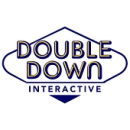If 2020 was a lesson in rapid response to change, 2021 was about adapting to it as a new normal.
In order to stay afloat in tech, many long-standing company policies and guidebooks had to be rewritten practically overnight. Remote work became a major expectation for the modern workforce. Employee benefits needed to include newfound perks like wellness stipends for mental health, at-home child care resources and relocation assistance as individual needs fluctuated. Most importantly, methods of remote connection had to be established in order to keep teams not only feeling supported, but united in their mission when everyday interactions had been eliminated.
Even with so much change, many teams found ways to thrive. Where remote methods originally faltered, leaders adjusted their approach and tried again. Innovative virtual approaches brought teams closer together than before and company cultures grew healthier as discussing professional priorities was no longer taboo. This resilience and willingness to respond to employee feedback helped organizations stand strong in the face of uncertainty, and develop foresight on what the future of work will look like heading into the new year.
“As employees consider what traditional employment means to them, more is going to have to be done than simply increasing wages to attract and retain a capable workforce,” said Mike Murawski, VP of finance and people at DoubleDown Interactive.
To get a better sense of the tech landscape possibilities in 2022, Built In Seattle caught up with Murawski and Shelf Engine Chief Operating Officer Deborah Alexander to find out what key trends they believe will carry over as vital resources and how they’re envisioning success moving forward.
2021 forced us all to reimagine how and where we work. What is one key work trend that emerged this year that you predict will continue to gain momentum in the year ahead?
Remote working is the standout trend that emerged in 2021. The necessity for remote working opportunities — and its lasting prevalence across employers — has prompted companies to implement hybrid work schedules for their local teams while adding more permanently remote roles. These shifts have had a number of downstream impacts from expanding recruiting practices, mastering virtual onboarding and discovering novel ways to foster mentorship and facilitate performance management to accommodate in-office, hybrid and remote employees alike.
I see companies deeply examining how they can make all employees feel more comfortable working from wherever they are.”
How has your company adapted over time to the workplace shifts brought on by the pandemic? What permanent impact has that had on the way your team works?
Something that Shelf Engine has adapted over the course of the pandemic and continues to iterate is our training and learning structures. People had become accustomed to working in proximity where they could, rather organically, build and foster a peer community and learning network.
Many companies are focusing on how to implement systems that can yield these same engagement and development outcomes inclusively, and they’re having to start from the ground up because this dynamic simply didn’t exist before. Shelf Engine has approached this challenge by creating more opportunities to develop our collective relationship-building skills. We’ve done this by creating space for more one-on-one conversations between managers and employees, and by connecting people inter-departmentally who might otherwise not interact by virtue of their roles.
Tools such as Lattice and Slack have helped make this connectivity a sustainable part of our operations to the benefit of our culture. We continue to evolve our office and communication guidelines to help ensure we are supportive of this environment.
As you head into the new year, what do you envision for the future of work? And how are you bringing that to life within your company?
In the very near future, I see companies deeply examining how they can make all employees feel more comfortable working from wherever they are. This includes adapting online conversations so that they are equally accessible to everyone. A terrific example of this is being deliberate to enable closed captioning and transcription to enable more inclusive and asynchronous options.
I believe the recruiting pool for talent will also drastically expand now that more and more organizations are open to considering remote candidates. That unlocks a great deal of diversity potential — an outcome that benefits everyone. At the same time, we will have to rebuild training and networking structures to ensure employees build meaningful and necessary skills and relationships to be successful in their future careers.
2021 forced us all to reimagine how and where we work. What is one key work trend that emerged this year that you predict will continue to gain momentum in the year ahead?
Adaptability. Adaptability applies to so many employee and employer-related responsibilities. As our “normal” continues to morph in 2022, being adaptable will be critical to success.
On the employer front, adaptability will mean being willing to change things that may have previously been viewed as non-negotiable in order to retain employees and maintain stability and success. For example, things like four day work weeks, “shutdown” weeks, “no meeting” days, flexible work time and restructuring benefits are just a few things that employers might have to consider to address the growing concerns of mental fatigue and burnout, high turnover, child care limitations and concerns, and so on.
Employees similarly might have to adapt to the examples mentioned above, especially those employees who are comfortable in more traditional Monday through Friday, 9-5 environments or who are accustomed to employers providing certain benefits and more.
Moving forward, nothing — employees’ feelings or potential options for how to work — can be dismissed.”
How has your company adapted over time to the workplace shifts brought on by the pandemic? What permanent impact has that had on the way your team works?
Being in a technology industry allowed us to quickly shift to working fully remotely without as much disruption as companies in the service industry, for instance, experienced. Internal electronic file shares were moved from behind a firewall to being accessible from any location. Soft benefits, like snacks in the office, were shifted to deliveries at home to help maintain connectivity with our employees. Through the use of our tools, collaboration and the ability to get work done simply shifted from the office to wherever our employees were, and we were lucky to have experienced very little impact in our ability to get what was needed done.
Moving forward, we will continue to work with our employees in a very flexible hybrid work model, asking employees to come into our office once a week to collaborate in person. Nine months ago, the intention was to return to the office five days per week. However, thinking quickly shifted to a plan that would continue to allow us to place value on both in-person and remote work while remaining flexible enough to be a competitive and attractive option for current and potential employees.
As you head into the new year, what do you envision for the future of work? And how are you bringing that to life within your company?
I saw somewhere that the pandemic caused a decade worth of workplace change in 12 months. Once momentum like that starts, it is difficult to stop. As employees consider what traditional employment means to them, more is going to have to be done than simply increasing wages to attract and retain a capable workforce.
Unlimited PTO, once considered the “next great thing,” may not be as valuable to employees in partially or fully remote work environments. While we’ve proven that work can be done anywhere, we need to be able to show that work can also be stopped so things just don’t pile up if an employee takes time off to disconnect, causing more stress when they return.
Moving forward, nothing — employees’ feelings or potential options for how to work — can be dismissed. What would have previously been considered radical changes that only startups would implement to attract talent will have to be considered. We’re pulsing and listening to employees more, taking their feedback and implementing change where it makes sense initially. As long as change is being implemented, it’s progress. Once employers and employees become comfortable with that change and realize it doesn’t cause the business to suffer, more can be done in quicker cycles. That’s how we’re approaching things: Change at a methodical pace at first, but once comfort is established, cycle change more rapidly and frequently until the new normal is better defined.









